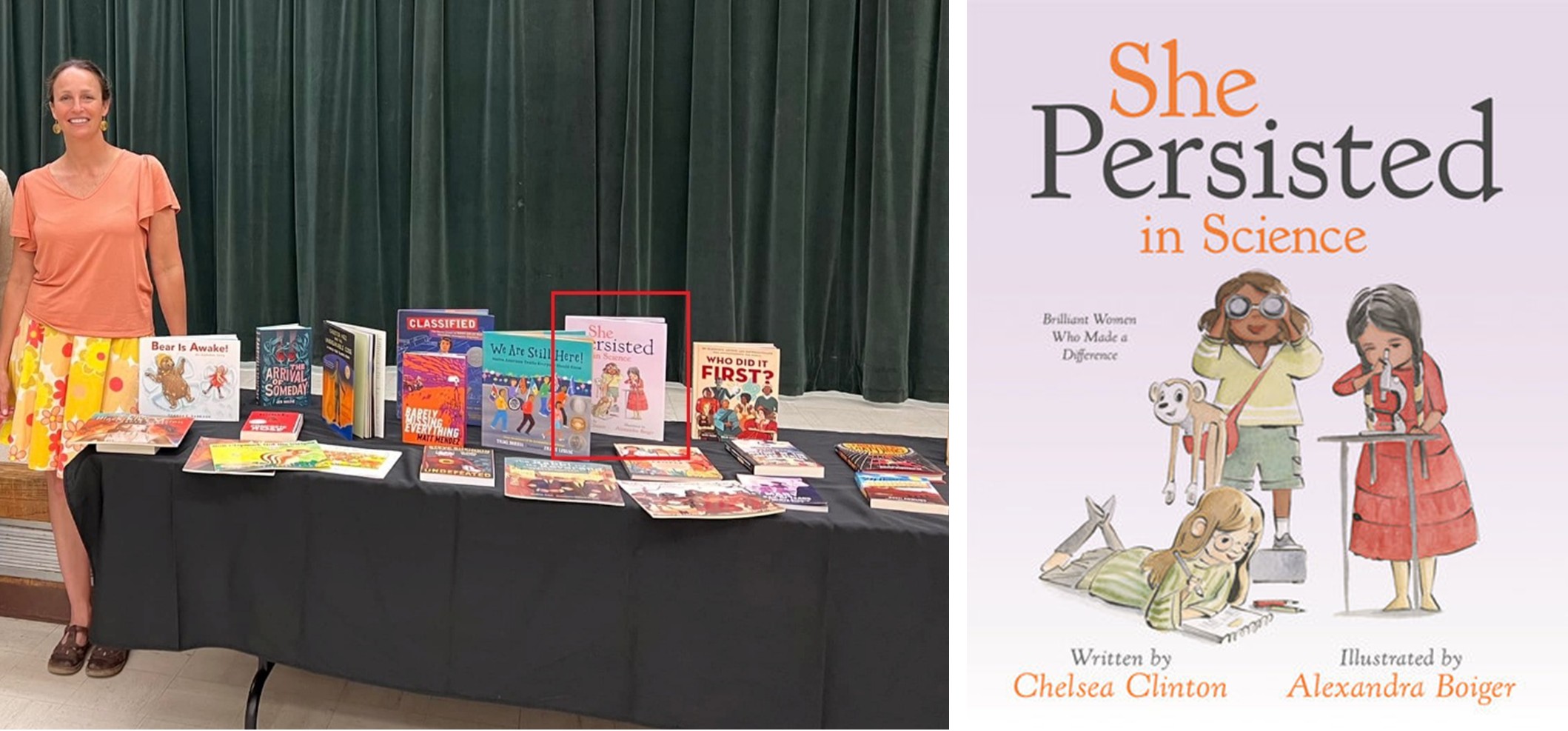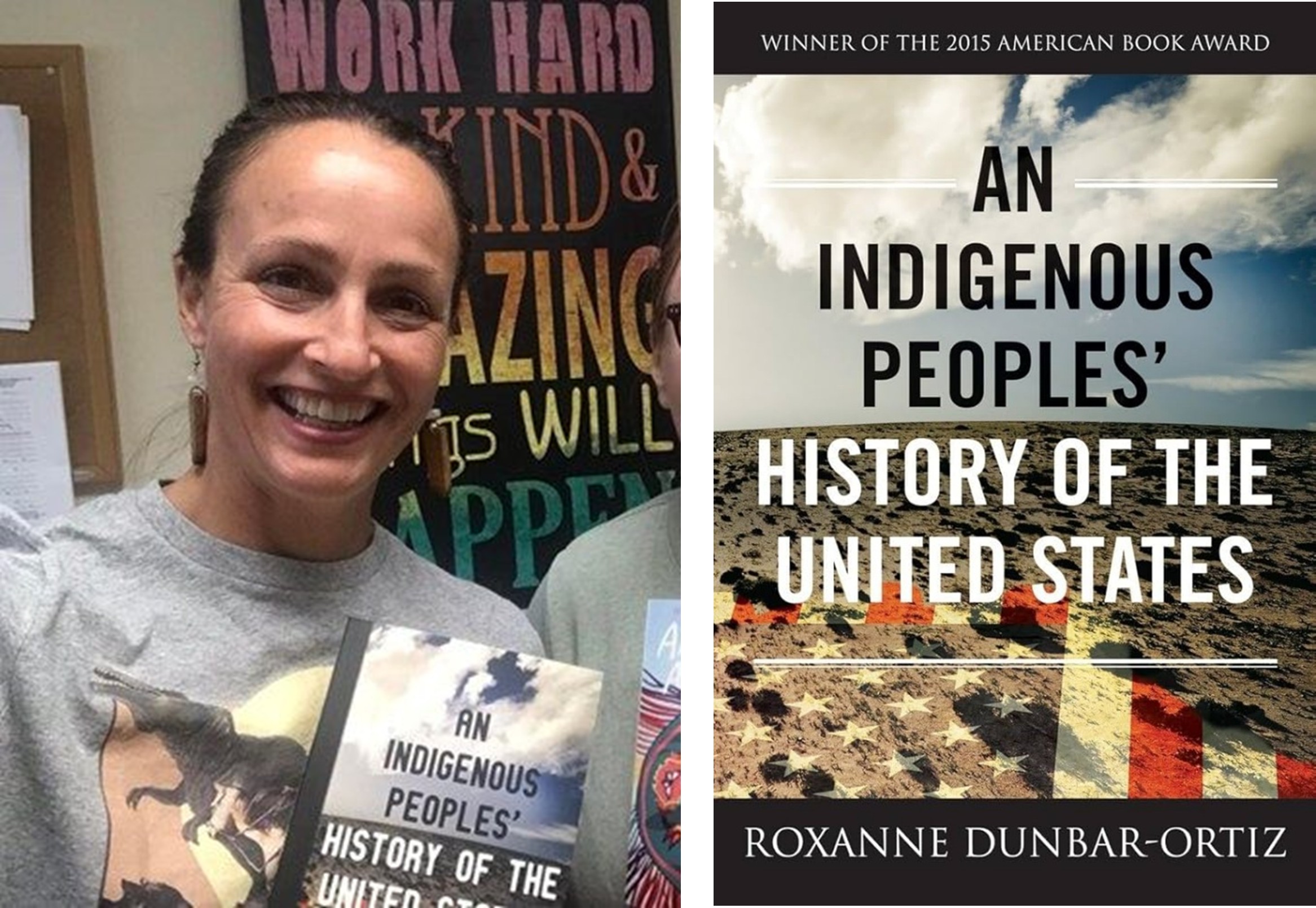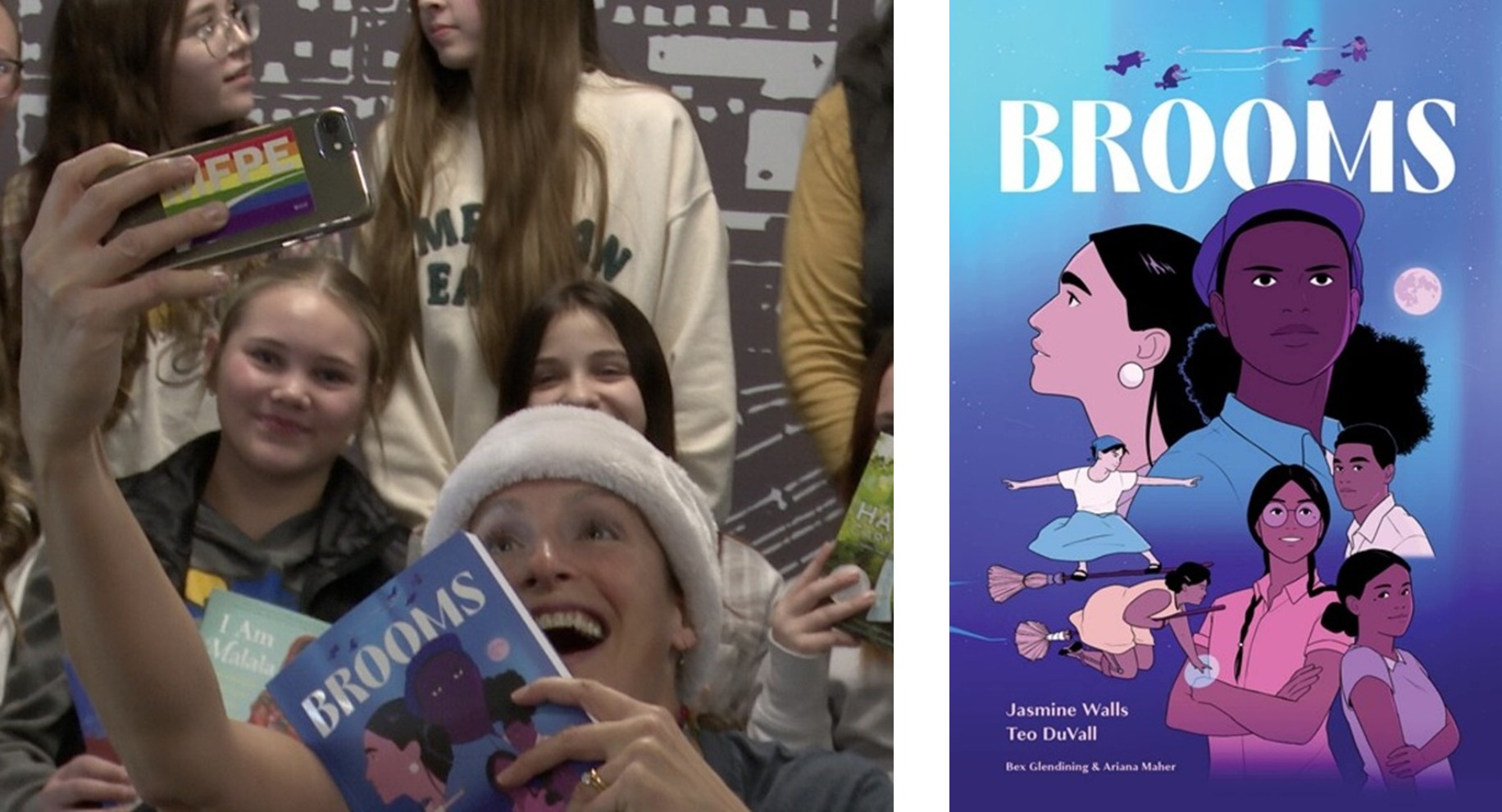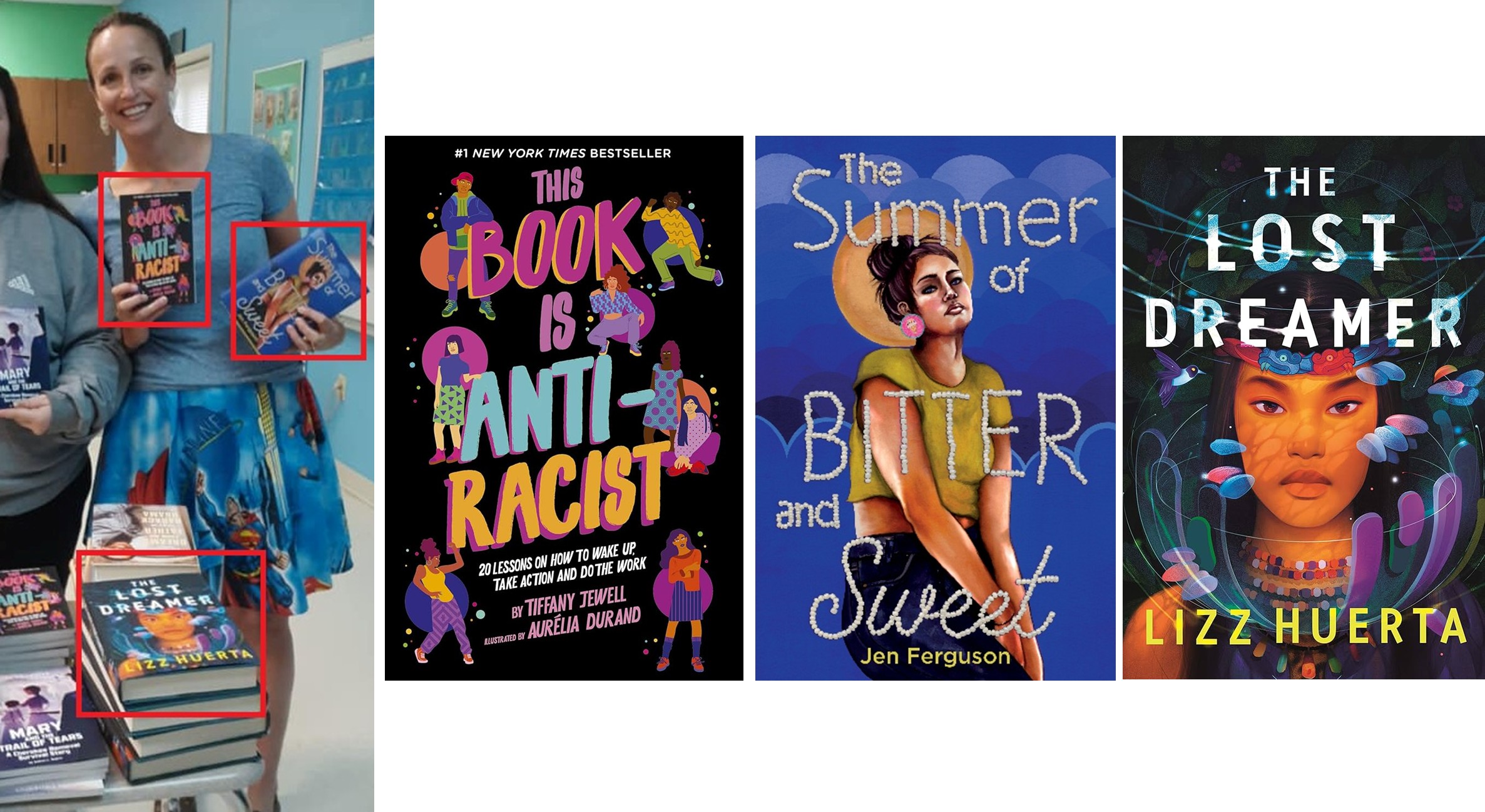Following Thanksgiving and the Black Friday and Cyber Monday retail bonanzas comes Giving Tuesday, created in 2012 as a campaign to promote generosity. This year, Montana Gov. Greg Gianforte and his wife, Susan, celebrated Giving Tuesday by promoting Dolly Parton’s Imagination Library, a nonprofit that seeks to increase childhood literacy by mailing a free book each month to subscribed children under age five.
The books distributed by the Imagination Library are listed online and appear generally uncontroversial—who could object to Eric Carle’s The Very Hungry Caterpillar?
But Dolly Parton and Montana’s first couple are not the only ones distributing free books to kids in Montana and, unfortunately, not everyone shares the same altruistic motives.
Over the past year, the state teachers union—the Montana Federation of Public Employees (MFPE)—has gone out of its way to distribute children’s books to public school libraries containing divisive racial content and LGBTQ+ themes and generally seeking to enlist students in progressive activism.
While the complete list of books donated by MFPE is not publicly available, MFPE president Amanda Curtis has used social media to document her travels delivering “banned books” around the state. The photographs provide some stunning insight into what the union deems appropriate and educational reading material for kids.
Wilsall, May 2023:

In a Facebook post, Curtis noted that she had “stocked the Wilsall and Hobson libraries.” Photos from the giveaway accompanying the post showed multiple copies of She Persisted in Science, by Chelsea Clinton, daughter of Bill and Hillary Clinton. The book endeavors to counter the purportedly pervasive sentiment that “women can’t be scientists” and, in so doing, praises the climate activism of Swedish youth Greta Thunberg, whom Clinton lauds as “one of the most powerful people in the world.”
Glasgow Child and Family Services, September 2023

In a Facebook post noting that she had just “[d]elivered books to Glasgow Child and Family Services (CFS) office for their visitation room or just to give to families,” Curtis posed with a copy of An Indigenous Peoples’ History of the United States.
Written by “historian and activist” Roxanne Dunbar-Ortiz, the book assails the very idea of the United States, reimagining the nation’s history from an indigenous people’s perspective—a sort of 1619 Project for American Indians.
In just her introduction, Dunbar-Ortiz:
- claims that “colonization,” “dispossession,” “settler colonialism,” and “genocide” are at “the core of US history” and form “the very source of the country’s existence”;
- expresses her refusal to use the “blatantly imperialistic” terms “America” or “American”;
- claims the United States was founded “based on the ideology of white supremacy, the widespread practice of African slavery, and a policy of genocide and land theft”;
- condemns modern “[e]xploitation by the largest corporations, often in collusion with politicians at local, state, and federal levels” and calls for “general public outrage” and “[r]esistance to these powerful corporate forces”;
- describes the United States’ opposition to communism during the Cold War as a “war with much of the world” because of the country’s failure to “acknowledge and repudiate” “the earlier wars against Indigenous peoples”;
- claims the “origin narrative” of the United States as “born of rebellion against oppression-against empire” is a “fallacy”; and
- praises “Indigenous scholars” who “draw upon and creatively apply the historical materialism of Marxism, the liberation theology of Latin America, Frantz Fanon’s psychosocial analyses of the effects of colonialism on the colonizer and the colonized, and other approaches, including development theory and postmodern theory.”
While it’s certainly important for American history to be taught comprehensively, without glossing over its more uncomfortable or regrettable chapters, the goal of neo-Marxist authors like Dunbar-Ortiz is not to contribute to historical knowledge per se, but to develop in students a sense of collective guilt and even a hatred towards their country such that they can be recruited as progressive foot soldiers dedicated to, in Dunbar-Ortiz’s words, “reparations, restitution, and reordering society.”
Butte, December 2023:

A photograph by local TV news station KXLF shows Curtis taking a selfie with a group of public-school students with some of the books the union had just donated. In the image, Curtis clutches a copy of Brooms, a graphic novel which has been described as a “fantastical LGBTQIA+ sports story” and “a queer, witchy Fast and the Furious” in which a group of racially and sexually diverse teen witches participate in illegal, underground broom races in 1930s Mississippi.
- Teo DuVall, the book’s illustrator, explained it was “important” to “draw witches who weren’t only white, cis and straight. Witches belong to all communities, and I wanted to make something that reflected all of the BIPOC witchy folks who exist in the real world – myself included.”
- The author, Jasmine Walls, noted that, “As with any book I write, queer characters are front and center. In Brooms, there are three main openly queer characters: Billie Mae and Luella are in a relationship with each other and Cheng Kwan is a trans woman.”
Brockton, May 2024:

In an image posted to her Facebook page, Curtis poses with two books, The Summer of Bitter and Sweet and This Book is Antiracist: 20 Lessons on How to Wake Up, Take Action and Do the Work.
The first book, The Summer of Bitter and Sweet, is described as a “tale of love (romantic, familial, and platonic) along with a painfully bitter story covering intergenerational trauma, anti-Indigenous racism, and all the ways being a teenager is harder when you’re not a cishet [cisgender—accepting of your biological sex—heterosexual] white teenager.”
The story touches on themes such as “how Native and Black people are discriminated against in a rural white community” and has been lauded for its “ace representation”—the protagonist is asexual, meaning she experiences no sexual attraction.
The author, Jen Ferguson, explains her purpose in writing and teaching is to,
“…help students… consider how systems of power work broadly, how power is distributed and why it’s distributed that way… [C]reative writing, and stories, are about how we experience our humanity, and how we experience our humanity must engage with the world around us. That’s political. And will remain so until human rights exist for all of us, until LGBTQIA+ books aren’t challenged and banned, until equity is practiced and reaffirmed everywhere…”
The second book is, as the title suggests, a guide to antiracism written for “the young person who doesn’t know how to speak up to the racist adults in their life.”
Among other things, the author:
- advocates for use of the term “folx” instead of “folks,” which apparently isn’t sufficiently gender-neutral;
- covers “the history from colonisation to assimilation (indoctrinating Indigenous folx through the coloniser’s educational system) to the current education system, and the history of resistance too”;
- discusses when and how to publicly and privately reprimand people for their purported racism or stereotyping;
- calls on readers to support “redistributing resources to support BIPOC [black, indigenous, people of color],” “stand up to police brutality” and “call out micro-aggressions”;
- notes that “the big work of anti-racism… is not something you can do in one day, it takes all school year”;
- encourages educators to, “[w]ork with students to create a list of young activists and change-makers” to emphasize that students “don’t have to wait until their adult years to take action and disrupt”;
- encourages students to “[r]ead about the characteristics of white supremacy culture,” which purportedly include traits like “perfectionism,” a “sense of urgency,” “objectivity,” “the written word,” and “individualism”; and
- advises students to develop a literal “anti-racist toolbox” to carry with them during the day including such items as:
- a “notebook and a pen” to “write down observations, thoughts, etc.”;
- photos of family and friends to stay “grounded”;
- “[c]hocolate and almonds for quick energy”;
- a “reusable water bottle… to stay hydrated”;
- “Tiger Balm” to “ease” the “pain,” “stress” and “tension” associated with confronting racists;
- 1-2 books by “BIPoC authors and folx living outside the imaginary box”;
- “[i]nformation about… [your] rights in English and Spanish”; and,
- a charged phone to “easily connect with others and take photos and videos.”
Perhaps if leaders in Montana’s public school system spent more time emphasizing the basics and less time stressing students out with the need to confront all the racist adults in their lives, student achievement wouldn’t be in such a dire state, with fewer than half of Montana students proficient in math, reading, and science.
A third book pictured with Curtis is The Lost Dreamer, a work of “magical historical fiction” set in “the dreamy and rich world of a magical, uncolonized Central America” and featuring “a detailed, supernaturally-charged setting and topical themes of patriarchal power and female strength” to argue that “the patriarchy destroys everything it touches.”
Conclusion
While presumably not every book distributed by MFPE is controversial or objectionable, there’s no denying the union seeks to advance its progressive ideology and values through the program. In comments to local press, Curtis explained the effort was specifically to counter “people who want to ban certain books.”
To be clear, ensuring that the limited number of books in a public or public-school library are age-appropriate, edifying, of some educational value, or reflective of community values isn’t “banning” anything. MFPE’s giveaway itself is evidence that even controversial books aren’t actually being banned.
Still, while MFPE can do what it likes with its own funds as a private organization, including purchasing and distributing woke books by progressive authors, policymakers are well within their rights to decide they don’t want to subsidize such organizations or programs with taxpayer dollars.
At present, Montana law requires school districts and other public employers to use their payroll systems and personnel to collect union dues on behalf of unions like MFPE. Through union contracts negotiated with public employers around the state, unions like MFPE have secured a host of additional privileges and taxpayer subsidies, like paid time off to engage in union activities—such as lobbying the legislature or maybe even delivering “banned books”—at taxpayer expense.
There’s little public policy justification for these union giveaways on their own terms, and none at all when they’re weaponized to promote divisive and controversial worldviews. Montana taxpayers, students, and families deserve better.










